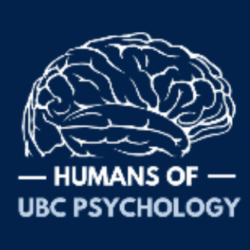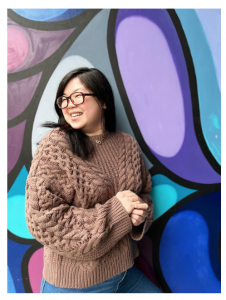
Batch of 2016
Home: Taiwan
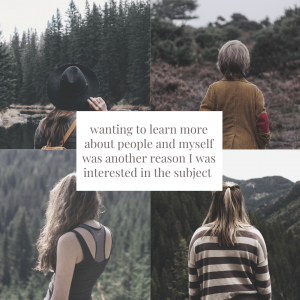
Why did you choose to study psychology?
When I was exploring different topics in high school, psychology was the one that I really enjoyed learning about. Not getting good grades weren’t much of a concern for me, honestly. Reading the textbook and joining the lecture was fun as it kept me engaged with the same. Moreover, wanting to learn more about people and myself was another reason I was interested in the subject . And, at UBC I was offered the opportunity to try a bit of everything. So here’s how I picked my interest for psychology and applied to UBC.
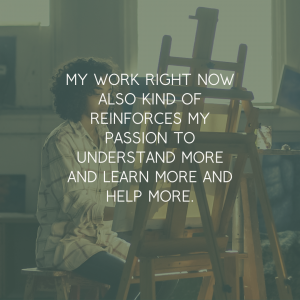
Was there a person who inspired you for your studies and your future goals?
I wouldn’t say as a specific person per se, it’s kind of a cumulative of experience and the stories that I hear kind of make me want to come back into this passion.I think a lot of time that my interest started more for psychology, but when I was at UBC. I actually did not get into thinking about doing grad school until recently. And I’m getting more into planning to get into masters of counseling, mainly because of my own experiences, actually, through counseling and through my experience of seeking support and seeing the difference that it made in my life and knowing the difference that I could make in other people’s life got me to want to get back to psychology and want to get into counseling. Adding to that, my work right now also kind of reinforces my passion to understand more and learn more and help more.
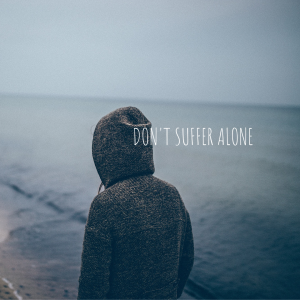
What’s your advice for incoming (PSYC) students at UBC or UBC students in general?
The advice that I will give is, no matter what issues or challenges that you’re going through, you really don’t need to go through it alone. Don’t get into the mindset of you need to be, you need to be sick enough Or you need to get into a bad place in order to seek support or help in any ways. Everyone deserves support, everyone deserves connection. So don’t suffer alone. Don’t wait to be in the worst case scenario to find resources or talk to somebody. Because that is exactly what I did. And that was a bad decision. University is a challenging time, no doubt. And once you get out of university, there are different sets of challenges that you’re going to be facing. There’s no issue that is too small. There’s no concern that is not important enough for people to seek support. Talking to someone is of great help during these tough times. Reaching out to your professors in order to seek help is recommended.
Knowing when to ask for help is so important.
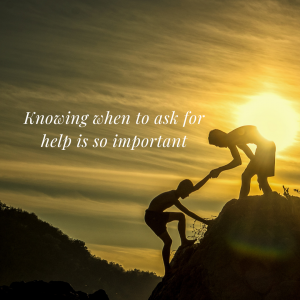
How do you manage to stay organized with your work and personal life?
Many people ask me this question, because I do a lot. I will say the things that I have noticed that I do, is really focus on what’s in front of me, and just focus on one thing at a time. And that comes from the work but also with the people that you’re with as well, when you’re with your friends focus on the time you are with your friends, when you’re working, focus on the people that you’re working with. And with time I realized, I really can’t do different things all at once. Focusing on one thing at a time is what I do. Another thing is to really value your time and the effort that you’re putting into the work that you want to do. So part of it is to set boundaries for yourself in terms of how you want to spend your time, maybe this is the time that I will spend on work, and then I need to take breaks so that I can keep going. Sometimes saying no to some of the social events should be a time for you to take care of yourself physically or mentally. Understanding that we can’t do everything is really the key here. And time is the most expensive thing I will say. So really look at how you spend your time and how you spend your energy on the things that you think are important to you and match with your values.
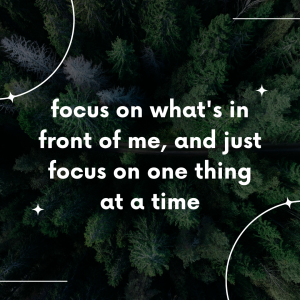
How did you increase your network with the community as a student?
I think a lot of conversation starts off with my peers. Talking to my classmates has helped me in learning and how we use that in our personal life. And, another way that I used to connect with the community, is by talking to the professor. And I think that connecting with your professor can really help one in more than one way.
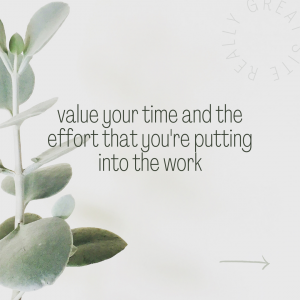
What have you been up to since you graduated?
I love working with people! That got me into the work I do currently with different customers and events. I like creating space for other people. I worked on festivals like Car Free Day and Vancouver Fashion Week. I also do event planning for weddings seasonally! In terms of full time work, I work with tech startups and human consulting.
A skill that I accumulated through university is how to work with different people and how to be a good teammate, while working independently. Those skills are transferable to any field and even today I am able to work with different people and handle different challenges that come up and be flexible.
How has life been as a young professional?
At the beginning, it was challenging! After working to get here for 4 years at university, I would think “Oh, is this it? Is this what I was working towards? Sitting in a cubicle at a 9 to 5 job?” I would wonder what else is out there that matches what I am passionate about. That’s how transitioning from a full time student to a full time worker was for me. It took time to settle down, get work done, get to know my coworkers and figure out how to work with them.
UBC always has opportunities for extracurriculars which the real word does not necessarily. Throughout this time, I never stopped volunteering. I volunteered with different nonprofit organizations, including Looking Glass Foundation for Eating Disorders, and worked with different people and learned from different groups. That’s something that I value a lot and really enjoy doing even today. I think that really helped me through the transition as I received a lot of support.
